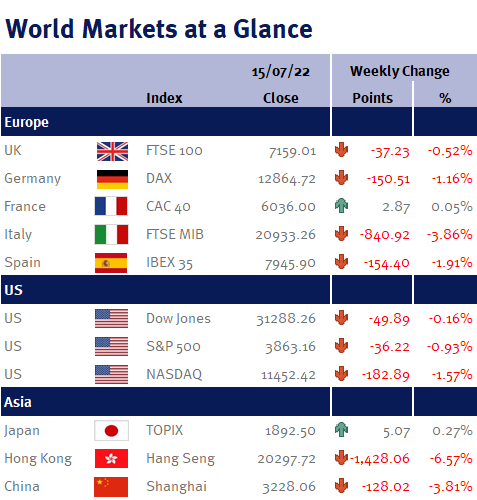Despite ending the week slightly down, Friday ended the week strongly as markets started to rein in its expectation for Fed rate rises.
In an early week data release, a measure of Chinese Exports came in 17.9% higher than the year before. This reading was higher than last month’s reading, and considerably higher than forecasts. This is the fastest pace in five months, due in part to the easing of supply chains that were caused by Covid-19, and plagued inflation.
In the US, CPI inflation increased to 9.1% for June, higher than the previous reading of 8.6%. The market’s eyes will be looking towards the Federal Reserve ahead of their interest rate decision on 27th July. Given the drivers behind inflation, we still believe that interest rate increases will be measured and gradual.
We had the release of UK GDP for May, which showed positive growth. The UK grew by 0.5% in May, this figure is significantly above April’s reading of -0.2, slightly into contraction territory. May’s GDP was driven by health output, boosted by NHS appointments. Some areas weighed on GDP, but a strong gain in the construction and manufacturing elements of data could reflect a welcome impact of supply chains continuing to ease.


